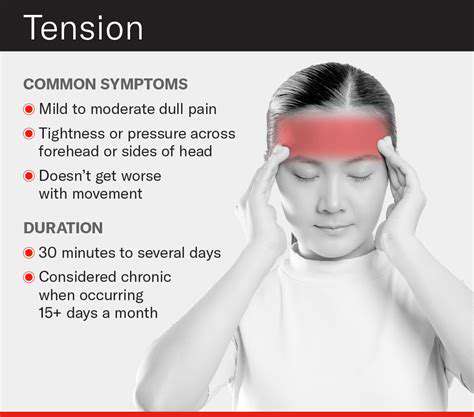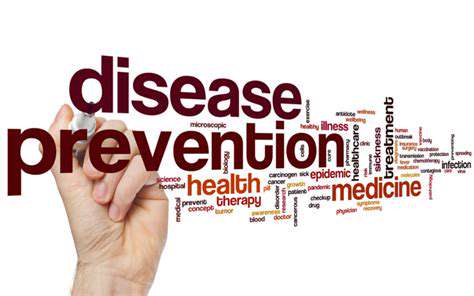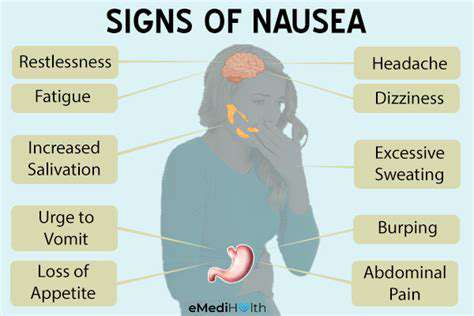Morning Headaches: Causes, Effects, and Solutions
Common Causes of Morning Headaches
Dehydration
One of the most common causes of morning headaches is dehydration. Throughout the night, the body continues to lose fluids through respiration and perspiration, which can lead to a deficit by morning. This lack of hydration can trigger headaches as the brain temporarily contracts and pulls away from the skull, creating pain and discomfort.
To combat dehydration, it's beneficial to drink plenty of water throughout the day and to keep a glass of water by your bedside to sip on before sleeping. Staying properly hydrated not only helps reduce the likelihood of headaches but also supports overall health and well-being.
Sleep Disorders
Sleep disorders such as sleep apnea, insomnia, and even poor sleep hygiene can significantly contribute to morning headaches. When individuals frequently wake up during the night or fail to enter deep sleep cycles, their bodies may not get the restorative rest they need, which can lead to tension and discomfort upon waking.
Improving sleep quality is crucial; this can be achieved by establishing a consistent sleep schedule, creating a calming bedtime routine, and ensuring that the sleep environment is conducive to rest. If sleep disorders are suspected, consulting a healthcare professional for an evaluation and potential treatment options is advisable.
Tension and Stress
Tension and stress are often simmering issues that can manifest as physical symptoms, including morning headaches. Over time, high stress levels can lead to muscle tightness in the neck and shoulders, which can, in turn, radiate pain to the head and cause migraines or tension headaches.
To alleviate stress-related headaches, incorporating relaxation techniques such as meditation, yoga, or regular exercise can be beneficial. Additionally, finding effective ways to manage stress, whether through mindfulness practices or talking to a counselor, can improve overall mental health and reduce the frequency of headaches.
Effects of Morning Headaches on Daily Life

Impact on Work Productivity
Morning headaches can significantly hinder an individual’s ability to concentrate and perform at work. When someone starts their day with discomfort, focusing on tasks becomes a strenuous effort. This lack of concentration often leads to mistakes and decreased overall productivity.
The fatigue associated with morning headaches can lead to frequent breaks, which disrupt workflow and further diminish output. It can also create a negative cycle, where reduced productivity increases stress levels, potentially exacerbating headaches. This ultimately affects job performance and may lead to tension with colleagues or supervisors.
People suffering from morning headaches may also find it challenging to engage in meetings or collaborative work effectively. Their minds may feel foggy, making it hard to contribute meaningfully to discussions or projects. This situation can be frustrating for both the individual and their team.
Influence on Personal Relationships
Chronic morning headaches can strain personal relationships, as affected individuals may withdraw from social activities. Friends and family might perceive this withdrawal as apathy or disinterest, potentially leading to misunderstandings. Frequent missed gatherings or plans can lead to feelings of isolation.
Moreover, when someone is in pain, it can affect their mood and interactions with loved ones. Irritability can increase, creating tension in relationships and resulting in emotional distance over time. Loved ones may struggle to understand the cause and implications of these headaches, further complicating relational dynamics.
Open communication is essential to alleviate misunderstandings. Sharing experiences about morning headaches can foster empathy among family and friends. This understanding can aid loved ones in providing the necessary support and compassion to those affected.
Effects on Mental Health
Experiencing regular morning headaches can contribute to increased anxiety and stress levels. The anticipation of waking up to a headache can create a constant state of worry, leading to a cycle of tension. This can negatively impact overall mental well-being and result in a diminished quality of life.
People may also develop sleep disturbances as they try to anticipate or avoid triggers associated with their headaches. Poor sleep can further exacerbate mental health issues, creating a feedback loop that makes managing both sleep and headaches challenging. Stress management techniques often become necessary to maintain mental health amidst these provocations.
Seeking professional help, such as therapy, can provide coping strategies for dealing with the mental toll of chronic headaches. Mental health support combined with headache management approaches can lead to better overall outcomes. Empowerment through support can significantly improve resilience against the effects of morning headaches.
Strategies for Managing Morning Headaches
Implementing a consistent sleep schedule is crucial in reducing the frequency of morning headaches. Going to bed and waking up at the same times daily helps regulate the body’s internal clock. Additionally, creating a calming pre-sleep routine can improve sleep quality, reducing the likelihood of headaches.
It's essential to identify potential headache triggers, such as certain foods, dehydration, or stress. Keeping a headache diary can help pinpoint these triggers, leading to more effective avoidance strategies. Making lifestyle adjustments, such as improving hydration and nutrition, can also play a vital role in headache management.
Seeking medical advice is advisable for chronic sufferers, as healthcare professionals can recommend appropriate treatments or medications. Combining medical advice with lifestyle changes can lead to a comprehensive approach to managing morning headaches. Support groups may also offer valuable advice and encouragement for those looking to overcome their struggles.
Effective Solutions to Prevent Morning Headaches

Understanding the Common Causes of Morning Headaches
Morning headaches are a prevalent issue that can significantly affect your daily routine. They can arise from various factors, including sleep disorders, dehydration, and even tension. It's essential to identify the underlying cause to seek appropriate treatment.
One common cause of morning headaches is sleep apnea, which disrupts normal breathing during sleep. This condition can lead to fragmented sleep, resulting in fatigue and morning headaches. Proper diagnosis and treatment are crucial for those suffering from this sleep disorder.
Another factor that contributes to morning headaches is dehydration. While sleeping, our body loses fluids, and if one does not replenish them adequately throughout the day, it can result in headaches upon waking. Maintaining proper hydration is vital for overall health and can help reduce the frequency of these headaches.
Additionally, stress and tension can accumulate overnight, leading to muscle tightness and headaches. Many people clench their jaws or tense their neck and shoulder muscles during sleep, aggravating this issue. Techniques such as relaxation exercises can be beneficial in alleviating tension.
Finally, dietary triggers can also play a significant role in morning headaches. Certain foods, caffeine withdrawal, or skipping meals can affect how one feels upon waking. Keeping a food diary may help identify potential triggers and promote better eating habits.
Effective Strategies to Alleviate and Prevent Morning Headaches
To combat morning headaches, it is essential to establish a consistent sleep routine. Going to bed and waking up at the same time each day can help regulate the body's internal clock, leading to more restorative sleep. Quality sleep is paramount for reducing the likelihood of waking up with a headache.
Incorporating relaxation techniques before bed can also be beneficial. Practices such as meditation, deep breathing exercises, or gentle yoga can help reduce stress levels and promote a peaceful night's sleep. Establishing a calming bedtime routine can set the stage for better rest.
Another effective solution is to ensure that your sleeping environment is conducive to rest. This means maintaining a comfortable room temperature, reducing noise levels, and using blackout curtains to enhance sleep quality. A well-maintained sleeping environment can significantly impact how refreshed one feels in the morning.
Keeping track of headaches in a journal can provide insight into patterns and potential triggers. This record can assist in identifying specific factors that lead to morning headaches, helping one to make informed lifestyle adjustments. Being proactive about recognizing patterns can lead to better management of headaches.
Finally, consider consulting a healthcare professional if headaches persist. They can provide personalized advice, conduct necessary tests, and suggest appropriate treatments tailored to individual needs. Early intervention can often prevent further complications and improve quality of life.





